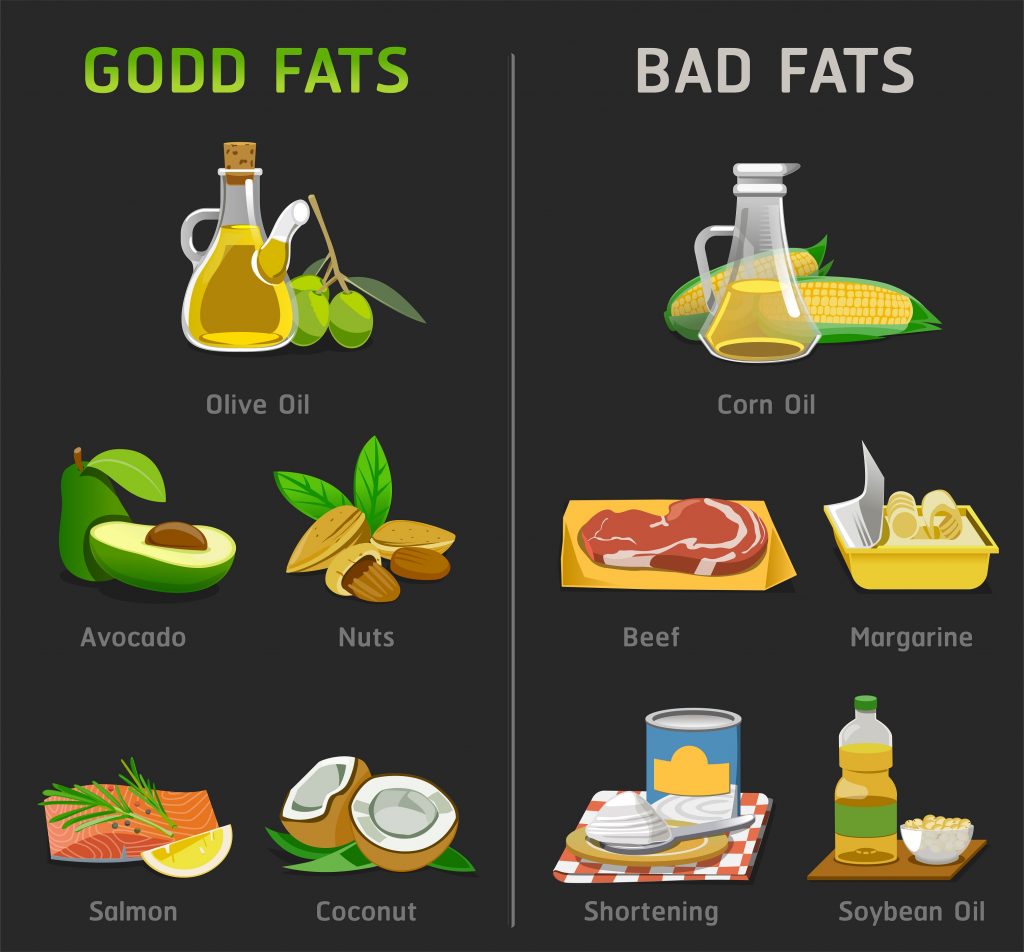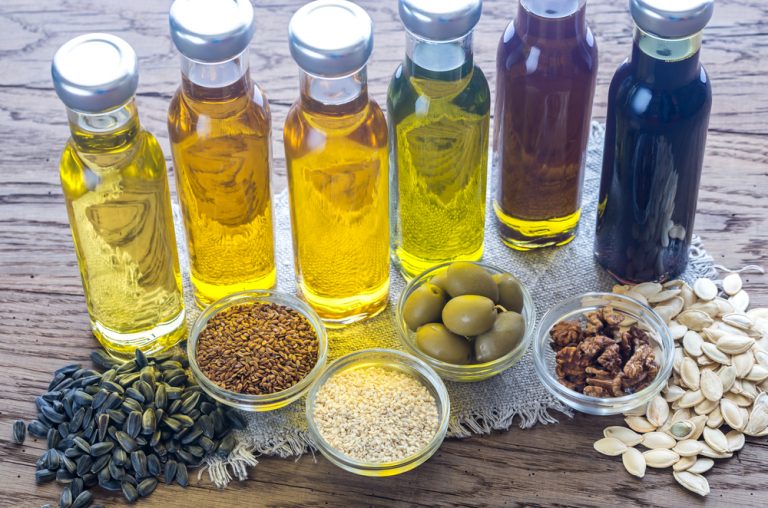Vegetable fats have a great influence on our health. We can choose from olive oil, linseed oil, rapeseed oil and many, many more. See what properties vegetable fats have and which one is the most suitable for you.
Fats under attack
Olive oil is, in a completely unjustified way, going through difficult times. After the great boom in olive oil and its enormous popularity, there have been criticisms that it is ... too fat, too caloric. It’s true - there is no fit version of olive oil, olive contains 100 per cent of fat. 100 grams of fat and olive oil actually contains 900 calories. But it should not be forgotten that fat is one of the main fuels for our body, the basic building block of cells, and therefore is absolutely essential for health.
Vegetable fats are the healthiest
Unlike animal fats, which are saturated fats and can cause cardiovascular disease, vegetable fats are unsaturated and therefore have numerous advantages - they are rich in unsaturated fatty acids, which reduce bad cholesterol, enhance the production of good, are a source of acids Omega-6 and Omega-3, which are not produced by the body and must be supplied from dietary sources. They are also a source of vitamin E, a natural antioxidant that prevents the formation of cancer cells and the ageing of the body.

The perfect way - a mixture
To get all the good properties - it’s best to mix olive oil and other oil. For frying, the addition of rapeseed oil in a proportion of half and a half with olive oil will be perfect in this mixture.
Remember that vegetable fat should be stored in a closed glass, metal or plastic container, in a shaded and cool place, or in a refrigerator. An open bottle or can of olive oil or oil should be consumed within not more than 3 months (unless otherwise indicated by the manufacturer), of course, during its shelf-life, so pay attention to this date.
Refined or not?
The extra virgin vegetable oils that you can buy in supermarkets are generally refined. Unrefined ones can be found in health food stores, but they have a fairly short shelf life. Cold-pressed ones are healthier. Nutritionists recommend not to use more than 1 to 2 tablespoons of refined oil per day.
Olive oil
Very flavorful. It is rich in monounsaturated fatty acids (75%), eliminates bad cholesterol, and also contains polyphenols and antioxidants that regulate cell ageing. Recommended for everyday use. It can be heated, but you cannot fry on it. It’s best to choose cold-pressed extra virgin olive oil.
Other oils
- Cereal seed oil the richest in vitamin E, but very unstable. It needs to be used up quickly.
- Safflower oil (from safflower) has a very high content of unsaturated fatty acids, recommended for potato salads and silage. An interesting fact is that this oil has depilatory properties (applied externally).
- Pistachio Nut Oil - its advantage is ... a subtle green colour used only cold for salads. This oil is more used in cosmetics (applied externally) than in the kitchen.
- Linseed oil, rich in Omega-3 fatty acids, which are degraded very quickly, therefore cold-pressed and unrefined, it is very unstable. It can only be used cold as an addition to salads, herring and soups (already added to the plate).






